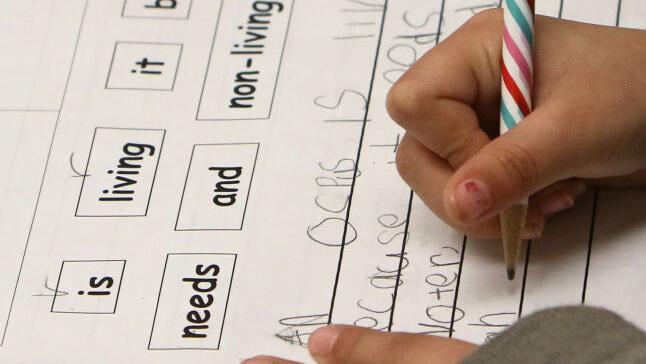PHOENIX — State senators voted Monday to enact specific new requirements for what schools and teachers have to make available to parents.
As approved on a 16-13 party-line margin, SB 1211 requires a listing of all materials and activities for student instruction. This ranges from textbooks and digital materials, to online applications and school assemblies and guest lectures.
This will not be a hardship on teachers as they need post only the titles and information within seven days, said Sen. Paul Boyer, R-Glendale.
Separately, the bill requires school districts and charter schools to provide information on their websites for parents to get advance access for review of current learning materials and activities being used in class. And the materials would have to be organized, at a minimum, by subject, grade and teacher. It also would need to be displayed in electronic formats that can be searched or sorted.
All the Democrats on the Senate floor voted against the measure.
“I am 100% in favor of transparency and parental involvement,” said Sen. Christine Marsh, D-Phoenix.
“I know firsthand that open communication between parents and teachers allows for better instruction and adaptability for the students,” she said. “But there are other ways to facilitate that without this particular bill which will have … unintended consequences on both students and on teachers.”
Marsh said the additional requirements will create more work for teachers that ultimately will result in them being able to spend less time with their students.
“They’re going to be busy loading thousands of points of data online every week or two,” she said.
But Boyer called SB 1211 “one of the most important, if not the most important bill of the session.” And Boyer, who said he is returning to full-time teaching next year, brushed aside the concern about the additional workload.
“It’s painless,” he said.
“As teachers, we’re always submitting lesson plans every single week,” Boyer said. “It’s so simple teachers can just upload to a Google Doc or a Word Doc, just the titles of whatever it is.”
And there’s something else, he said, that makes this a good idea.
“Some of you know that parents, not all of them, but some of them do distrust their school districts,” Boyer said. “This bill helps to alleviate that.”
He also said actually will help teachers, enabling them to see what others in the field are doing.
“Maybe, just maybe, I can apply some of the same kind of teaching materials in my classroom,” Boyer said.
But Sen. Tyler Pace, R-Mesa, questioned whether what’s in the bill is workable, particularly at the elementary school level.
For example, he said his son is in the third grade where they give him his choice of what to read from perhaps a thousand books.
“Which one of those thousand books is required reading?” Pace asked, and has to be listed online. Still, Pace voted for the measure, saying he hopes there are changes when the measure is considered by the House where it now goes.
Sen. Michelle Ugenti-Rita, R-Scottsdale, also voted with all the Republicans to approve the measure. But she questioned whether this was little more than window dressing — “to look as though we are doing something” — to deal with a deeper problem.
“Putting up loads and loads and loads of information isn’t really going to solve the problem that we have in K-12,” Ugenti-Rita said.
“We have a leadership problem in K-12,” she continued. “We have a problem with teacher unions. We have a problem with board members who sit on school boards who are elected in non-partisan races and nobody knows who they are.”
In fact, Ugenti-Rita proposed legislation this session to require board candidates to list their political affiliations, only to have it defeated.
“This will leave parents with the impression that something is done when nothing is done,” she complained. Instead, Ugenti-Rita said, SB 1211 will “add a lot of busy work for teachers.”
The measure outlines enforcement procedures, including requiring a response from the school principal to a complaint with 15 days and then, if the parent is not satisfied, gives the governing board another 25 days. It also spells out that parents can pursue legal action, as can the state school superintendent, the auditor general, the attorney general or the county attorney.
Not everything that teachers would have to post would come afterwards.
The measure spells out that materials on certain subjects actually have to be put on display at least 72 hours before first use. These include issues of discrimination and diversity and bias based on race, ethnicity, sex or gender.
Also covered by this 72-hour rule is “action-oriented civics,” defined as assignments or projects that require students to contact elected officials or other outside entities, whether to advocate for a political or social cause or to participate in political or social demonstrations.





